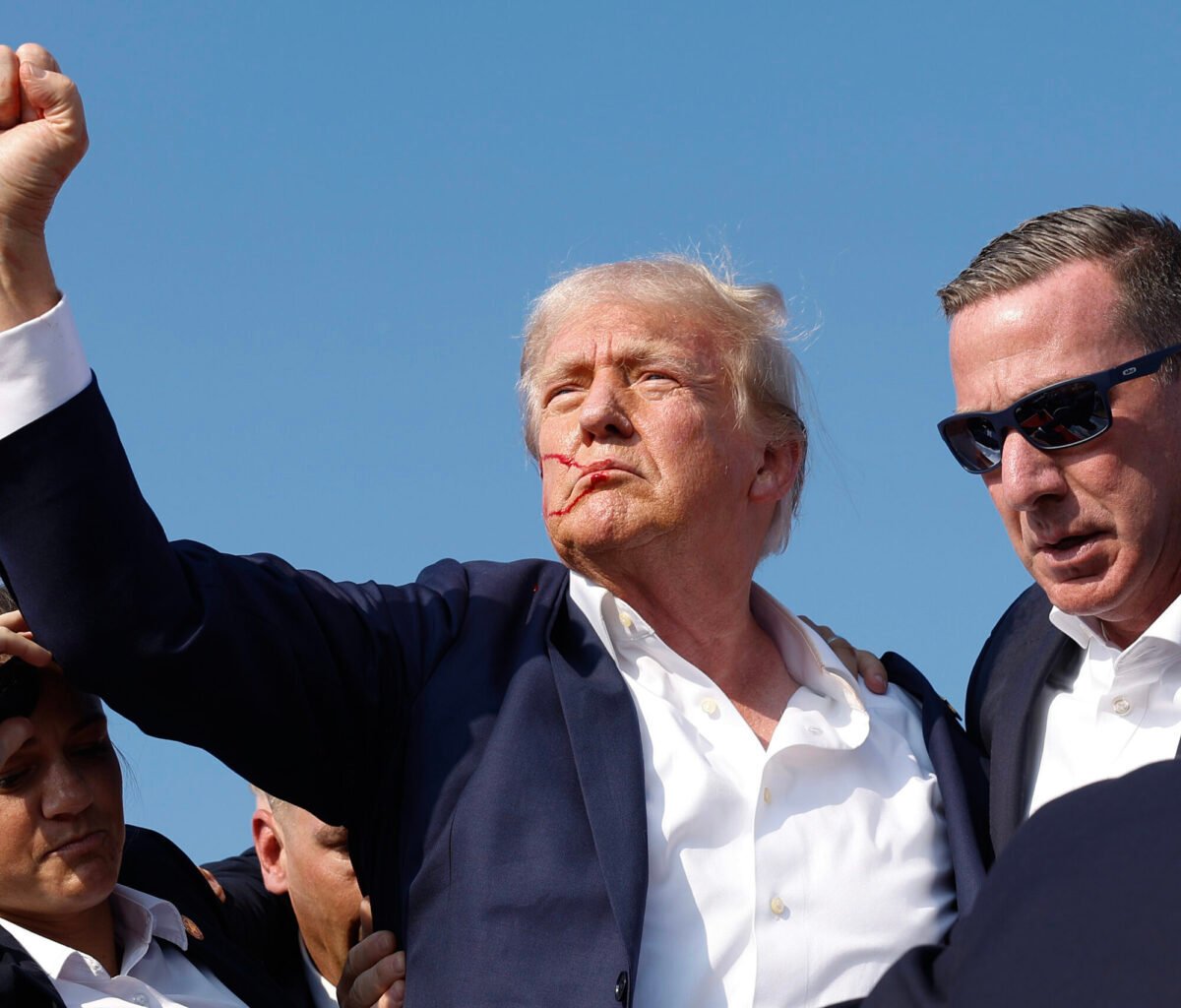Pennsylvania, July 13, 2024 – Former U.S. President Donald Trump narrowly survived an assassination attempt while addressing a rally in Butler, Pennsylvania. The shocking incident, which resulted in one fatality and multiple injuries, has sent ripples through the nation as authorities investigate the attacker’s motives and security lapses.
The Attack
Trump was speaking at an outdoor campaign rally when gunfire erupted. The assailant, identified as 20-year-old Thomas Matthew Crooks, fired multiple rounds toward the stage. A bullet grazed Trump’s ear, drawing blood but causing no severe injuries. Secret Service agents quickly responded, neutralizing the shooter on the spot.
However, the attack left a deeper scar. Corey Comperatore, a 50-year-old rally attendee, was struck and killed instantly. Two others suffered serious injuries and were transported to nearby hospitals for treatment. The tragic event has ignited discussions about political violence and the safety of public figures in the U.S.
The Aftermath
Following the attack, Trump was swiftly taken off stage by Secret Service agents and transported to a secure location. Shortly after, he posted on his social media platform, reassuring his supporters:
“I’m doing well, just a little grazed. Thank you to the Secret Service for their fast action. Prayers for the victims and their families. America must stay strong!”
President Joe Biden publicly condemned the attack, calling it a “heinous act of violence that has no place in our democracy.” Political leaders across the spectrum, from Vice President Kamala Harris to Republican officials, expressed their outrage and relief that Trump survived.
Who Was the Shooter?

Investigators identified Crooks as a 20-year-old from Bethel Park, Pennsylvania. His motives remain unclear, though preliminary reports indicate he acted alone. Law enforcement agencies are examining his online activities and personal history for any signs of radicalization or premeditation.
Crooks reportedly positioned himself on a nearby rooftop before firing at Trump. Authorities are investigating how he was able to access the area and whether security measures were adequate.
Security Concerns and Political Reactions
The assassination attempt has sparked urgent discussions about security measures for high-profile political figures. Many are questioning whether more should have been done to prevent the attack.
Lawmakers have called for a reassessment of Secret Service protocols, particularly for outdoor events. Republican Senator Ted Cruz stated, “This should never have happened. We need to take a hard look at how to prevent this kind of attack in the future.”
Meanwhile, Elon Musk, who has shown increasing support for Trump’s campaign, condemned the attack, emphasizing the dangers of escalating political violence in the U.S.
A History of Political Violence
Trump’s assassination attempt is one of several in modern American history. Past presidents, including Ronald Reagan and John F. Kennedy, have been targets of political violence, underscoring the persistent threat public figures face.
Historians note that such attacks often coincide with periods of heightened political tension. As Trump campaigns for another term, experts worry that further violence could erupt, fueled by deep partisan divisions.
The Road Ahead
Despite the attack, Trump has vowed to continue his campaign. His supporters view his survival as a sign of resilience, with many doubling down on their commitment to his candidacy. A rally scheduled for the following week remains on the calendar, though security measures are expected to be significantly tightened.
Political analysts predict the event could boost Trump’s support among voters, framing him as a leader who has literally bled for his country. Others warn that the attack could deepen existing political divides, increasing the risk of further violence.
Conclusion
The assassination attempt on Donald Trump has left the nation in shock, raising pressing questions about security, political rhetoric, and the future of American democracy. As investigations continue, one thing remains clear: the path to the 2024 election has just become even more intense and unpredictable.






